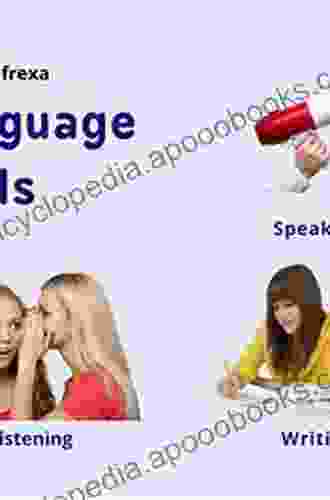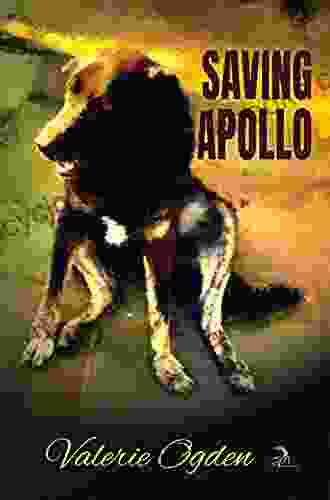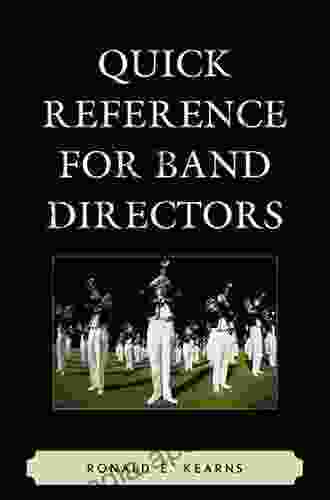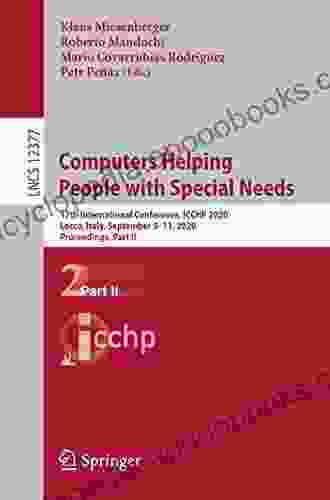From Language Skills to Literacy: Empowering Learners on their Journey to Reading and Writing Fluency

Literacy, the ability to read and write proficiently, holds immense significance in today's world. It serves as a gateway to knowledge, communication, and lifelong learning. However, the journey towards literacy can be challenging, requiring a solid foundation in language skills. This article delves into the intricate relationship between language skills and literacy, exploring how they interweave to support learners in their pursuit of reading and writing fluency.
Language Skills: The Building Blocks of Literacy
Language skills encompass a range of abilities that enable individuals to comprehend and express themselves through spoken and written language. These skills include:
5 out of 5
| Language | : | English |
| File size | : | 13128 KB |
| Print length | : | 66 pages |
- Phonological awareness: The ability to recognize and manipulate the sounds in words.
- Vocabulary: The knowledge and understanding of words and their meanings.
- Grammar: The rules that govern how words are combined to form sentences.
- Syntax: The Free Download in which words are arranged to create meaningful sentences.
- Pragmatics: The ability to use language appropriately in different social contexts.
These language skills lay the foundation for literacy acquisition. Phonological awareness, for instance, helps learners decode words by recognizing the relationship between letters and sounds. Vocabulary provides the building blocks for comprehension and expression, while grammar and syntax guide sentence construction. Pragmatics ensures that learners can effectively communicate their thoughts and ideas in writing.
The Interplay of Language Skills and Literacy
Literacy and language skills are inextricably linked. As learners develop their language skills, they simultaneously enhance their ability to read and write. Reading exposes learners to new vocabulary, grammatical structures, and pragmatic conventions, enriching their language comprehension. Conversely, writing helps learners refine their language skills by requiring them to apply their knowledge of grammar, vocabulary, and syntax.
This interplay becomes evident in the various stages of literacy development. In the emergent literacy stage, young children begin to recognize letters, sounds, and words. As they progress to the phonics stage, they use their phonological awareness to decode words and develop fluency. In the conventional orthography stage, learners focus on spelling and grammar, expanding their vocabulary and solidifying their understanding of language rules.
Strategies for Fostering Language Skills and Literacy
Educators and parents play a crucial role in supporting learners' language skills and literacy development. Effective strategies include:
- Engaging children in language-rich activities: Such as reading aloud, singing songs, and playing language games.
- Providing opportunities for oral language development: Encouraging children to talk, ask questions, and participate in discussions.
- Using explicit instruction in phonological awareness: Teaching children about letter sounds, blending, and segmentation.
- Building vocabulary through rich text exposure: Reading a variety of texts and discussing the meaning of new words.
- Encouraging daily writing practice: Providing opportunities for children to write for different purposes and audiences.
The journey from language skills to literacy is a transformative one. By understanding the intricate relationship between these two pillars, educators and parents can create supportive environments that foster reading and writing fluency. Through engaging in language-rich activities, developing language skills, and providing ample opportunities for reading and writing practice, learners can embark on a path towards lifelong literacy and success.
5 out of 5
| Language | : | English |
| File size | : | 13128 KB |
| Print length | : | 66 pages |
Do you want to contribute by writing guest posts on this blog?
Please contact us and send us a resume of previous articles that you have written.
 Book
Book Novel
Novel Page
Page Chapter
Chapter Text
Text Story
Story Genre
Genre Reader
Reader Library
Library Paperback
Paperback E-book
E-book Magazine
Magazine Newspaper
Newspaper Paragraph
Paragraph Sentence
Sentence Bookmark
Bookmark Shelf
Shelf Glossary
Glossary Bibliography
Bibliography Foreword
Foreword Preface
Preface Synopsis
Synopsis Annotation
Annotation Footnote
Footnote Manuscript
Manuscript Scroll
Scroll Codex
Codex Tome
Tome Bestseller
Bestseller Classics
Classics Library card
Library card Narrative
Narrative Biography
Biography Autobiography
Autobiography Memoir
Memoir Reference
Reference Encyclopedia
Encyclopedia 2008th Edition Kindle Edition
2008th Edition Kindle Edition Chanequa Walker Barnes
Chanequa Walker Barnes Margaret Mizushima
Margaret Mizushima Connie Goldsmith
Connie Goldsmith Charles L Granata
Charles L Granata Greg Goebel
Greg Goebel Ping Xia
Ping Xia Thad Kousser
Thad Kousser 2012th Edition Kindle Edition
2012th Edition Kindle Edition Jill Shalvis
Jill Shalvis A K Khurana
A K Khurana Pam Turner
Pam Turner A William Place
A William Place Tara Greaney
Tara Greaney Stephan Collishaw
Stephan Collishaw Kristie Romero
Kristie Romero Anabelle Bryant
Anabelle Bryant Bonnie Nieves
Bonnie Nieves Sue Wilkes
Sue Wilkes Jenny Erpenbeck
Jenny Erpenbeck
Light bulbAdvertise smarter! Our strategic ad space ensures maximum exposure. Reserve your spot today!
 Emmett MitchellUnveiling the Visionary Genius of William Blake: Explore the Complete Works...
Emmett MitchellUnveiling the Visionary Genius of William Blake: Explore the Complete Works... Asher BellFollow ·11.1k
Asher BellFollow ·11.1k Tom ClancyFollow ·17k
Tom ClancyFollow ·17k Aldous HuxleyFollow ·11k
Aldous HuxleyFollow ·11k Jeffrey HayesFollow ·7.8k
Jeffrey HayesFollow ·7.8k Charlie ScottFollow ·18.5k
Charlie ScottFollow ·18.5k Rick NelsonFollow ·3.4k
Rick NelsonFollow ·3.4k Jimmy ButlerFollow ·12k
Jimmy ButlerFollow ·12k John GrishamFollow ·10.7k
John GrishamFollow ·10.7k
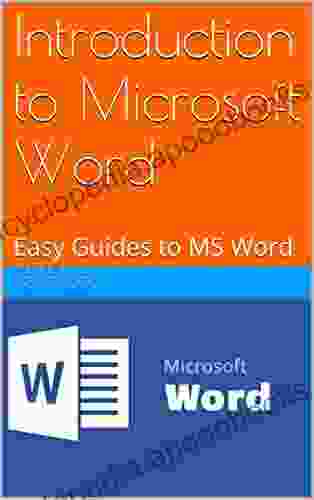
 Jacob Hayes
Jacob HayesUnlock the Power of Microsoft Word: A Comprehensive Guide...
Microsoft Word is a widely used word...
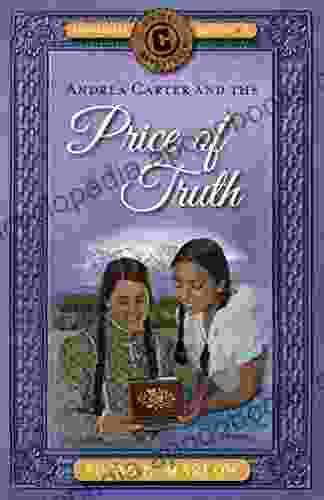
 Hunter Mitchell
Hunter MitchellAndrea Carter and the Price of Truth: A Thrilling...
Get ready for an unforgettable...

 Ivan Turner
Ivan TurnerTrading Jeff and His Dog: An Unforgettable Adventure of...
Get ready for an emotional rollercoaster...

 Langston Hughes
Langston HughesGo Viral TikTok: The Ultimate Guide to Gaining 100K...
TikTok has emerged as a social...

 Ibrahim Blair
Ibrahim BlairUnveil the Enchanting Realm of Short Fiction: Dive into...
Delve into a Literary Tapestry of...
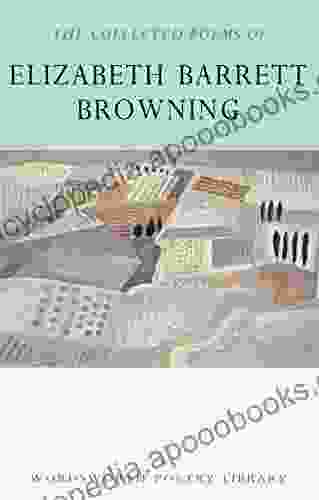
 Tennessee Williams
Tennessee WilliamsUnveil the Enchanting World of Elizabeth Barrett...
A Poetic Tapestry of Love, Loss, and...
5 out of 5
| Language | : | English |
| File size | : | 13128 KB |
| Print length | : | 66 pages |


